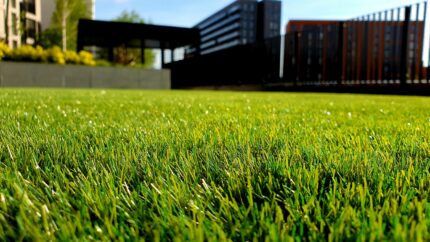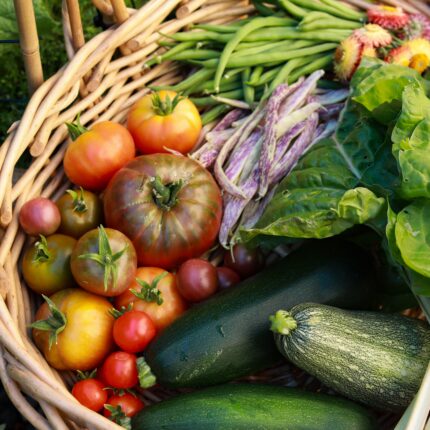Epsom Salt Boosts Harvest for Family Farmer Who Donates 50,000 Pounds of Crops to the Needy
On a sixth-generation farm that the Barbee family has owned for more than a century, Brent Barbee has discovered a new way to increase his harvest and make his fruit taste sweeter. He's using Epsom salt.
Barbee said he used to fertilize every time he watered, but fertilizer causes salt buildup in soil. Now he uses Epsom salt through drip irrigation to help separate fertilizer bound to the soil and make it available to the plants. It reduces the total amounts of fertilizers he needs, and makes the fertilizers he uses more effective.
"The Epsom salt makes the nutrients more available," he said.
Barbee spent the first day of spring mixing Epsom salt with water at a ratio of 10 pounds per acre. For residential gardeners, that's the equivalent of an eighth of a pound—or about a quarter-cup of Epsom salt—per 500 square feet. It's a step that's even more important with sandier soil.
Barbee uses the same solution on several of his other crops, including lettuce, tomatoes and cucumbers. Once his cantaloupe and watermelon grow to the size of a baseball, he also uses the mixture as a weekly foliar spray, helping them taste sweeter.
"It was an old myth, but we tried it, and it works," Barbee said. "You do a blind taste test, and you can tell the difference."
Barbee offered the following tips for residential gardeners:
- Fertilize your soil in the winter, about a month before growing season starts, and then add Epsom salt when you set the plants. Use an eighth of a pound of Epsom salt—or about a quarter-cup—per 500 square feet. With sandier soil, you may want to fertilize about two weeks before growing season begins.
- Look for yellowing between the veins of leaves, because it could be a sign of magnesium deficiency that might require Epsom salt.
- Work with your county extension agent to test your soil by sending a sample before planting. This should be done every one to three years, depending on the cost. If there are problems with plants, county extension agents can also ask smart questions to help with a diagnosis. Find your nearest extension agent.
"Taking care of the soil,"" Barbee said, "will take care of you."
To donate to the Society of St. Andrew, please visit: www.endhunger.org.





